Reclaiming Dignity After 20 Years of Obstetric Fistula
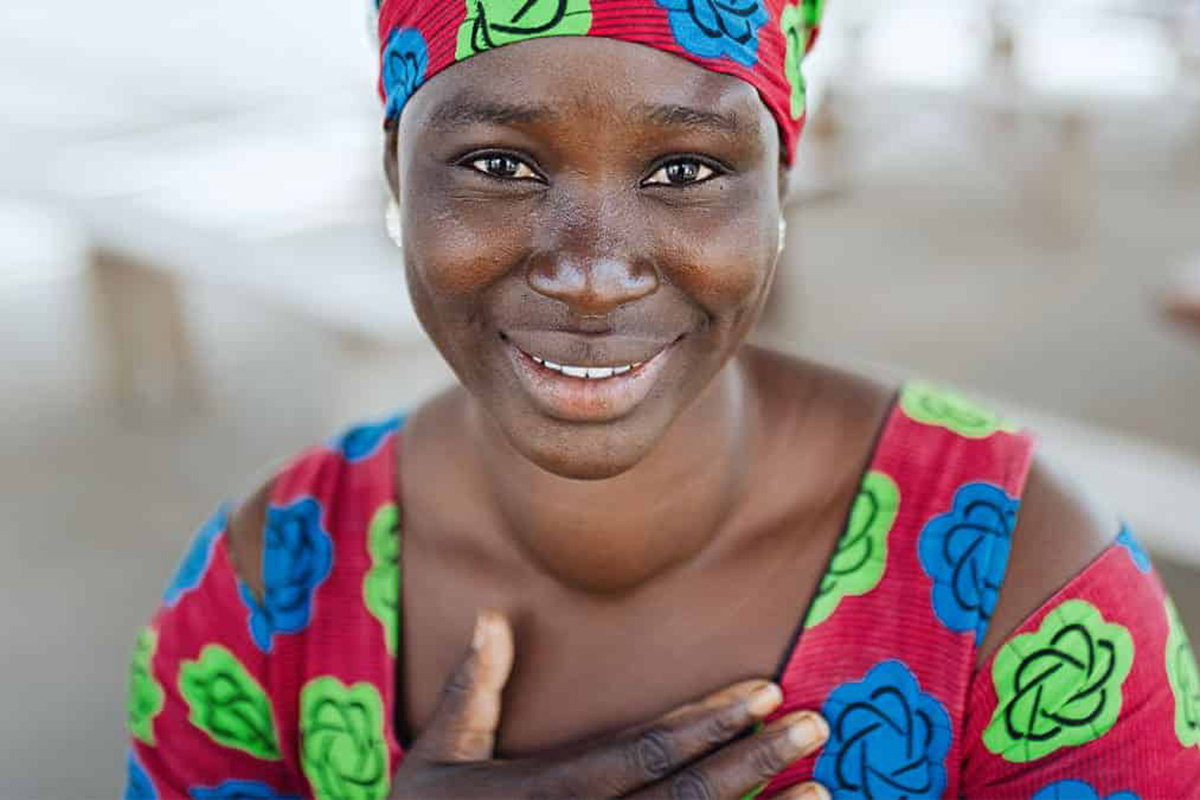
Astou was 20 years old when her life took an unexpected turn. At the time, she was married and expecting her first child. She had a close, supportive family and was part of her community in Senegal. The future held joy and promise.
But when she woke up after an emergency caesarean surgery, Astou quickly realized something was wrong. Her strenuous labor had caused internal injuries and resulted in obstetric fistula.
According to the World Health Organization, an estimated 2 million young women live with obstetric fistula in sub-Saharan Africa and Asia. While fistulas are largely preventable with timely access to obstetric care, proper healing generally requires surgery.
Because she couldn’t afford surgical care, Astou lived with the fistula – which left her leaking urine – for the next 20 years. Sadly, Astou also lost her baby during the difficult childbirth.
“I stayed in bed for a month, and I couldn’t get up or do anything else,” she recalls the immense grief.
The Challenges of Obstetric Fistula
Astou’s first husband left her soon afterwards, when he realized the leaking wasn’t going to stop. She wasn’t able to keep working as a house helper, so she had to move back home with her parents.
In many cases, women like Astou with fistula are often shunned and abandoned by their communities because they’re often perceived as unclean. But despite the rejection from her husband, Astou’s family stood by her side. Though they couldn’t afford to get Astou medical help, they provided emotional support.
“My family had pity on me, no one rejected me or said anything I didn’t like,” remembers Astou.
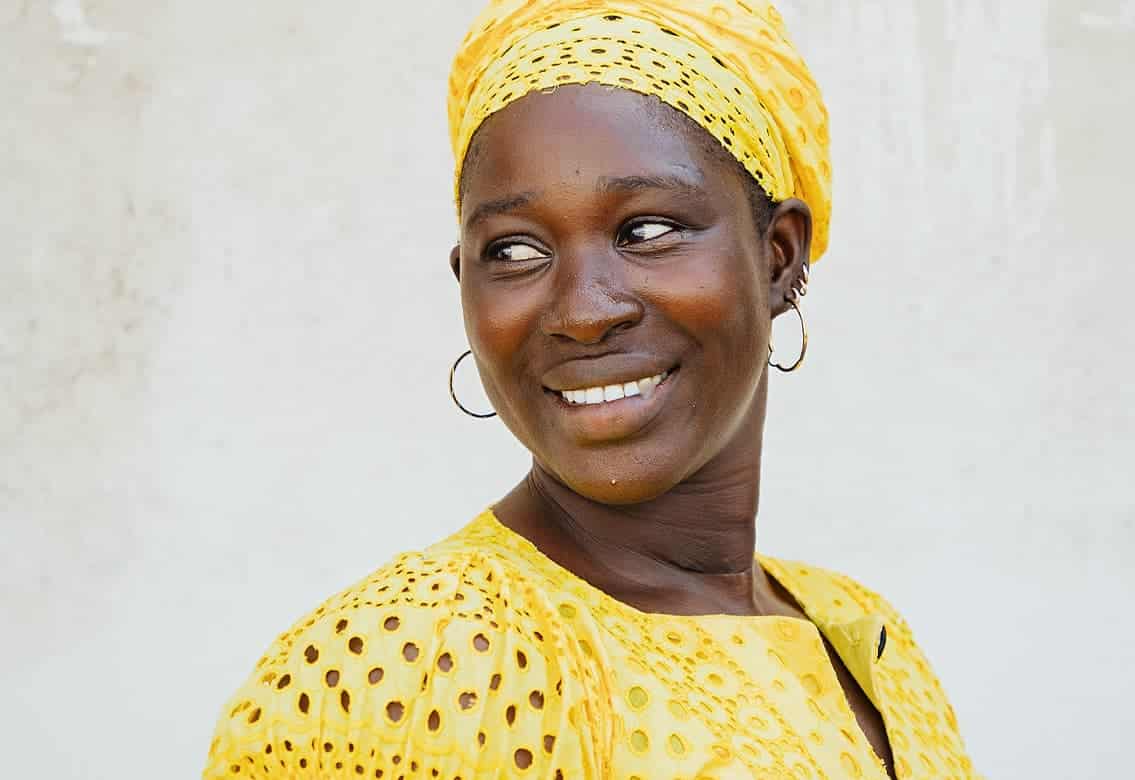
But even with a supportive family, the condition limited Astou’s social life. She isolated herself out of fear that she would leak and smell. Missing her sister’s wedding and hiding away from guests was particularly painful for Astou.
“On the day of the wedding, I locked myself in the room. I told my family, ‘don’t tell them where I am, just tell them I’m not here.’”
Missing out on social events and family gatherings is common for women suffering incontinence. It is especially lonely in Africa because social connections are highly valued in most communities. This disconnection from community leads to further isolation.
Love and Hope Bloom
During a family event, she met Mamadou – and hope bloomed again. When he expressed interest in marrying her, she immediately told him about her condition, expecting him to take it back.

“It won’t stop me from marrying you and doing everything I can to get you medical care,” he replied.
After their wedding, Mamadou – a farmer and businessman – kept his promise and started saving up to take her to the hospital. A local doctor confirmed her condition was treatable – but it would require surgery.
Once again, the lack of finances was an obstacle in their way to healing. So the newlyweds waited and hoped. During this time, they also welcomed a little miracle: their daughter. Then they heard on the radio that Mercy Ships was coming to Senegal to offer free surgeries.
Mamadou and Astou went for an appointment, at first only seeking treatment for Astou’s goiter, a swollen thyroid lump that had been growing for 10 years. But knowing that the obstetric fistula was treatable, Mamadou took a leap and asked whether they could give her surgery for that as well. He had seen his wife carry the burden of an unseen condition by herself for years.
The news was more than they could have hoped for: Astou would receive surgery for both conditions, the visible and the invisible!
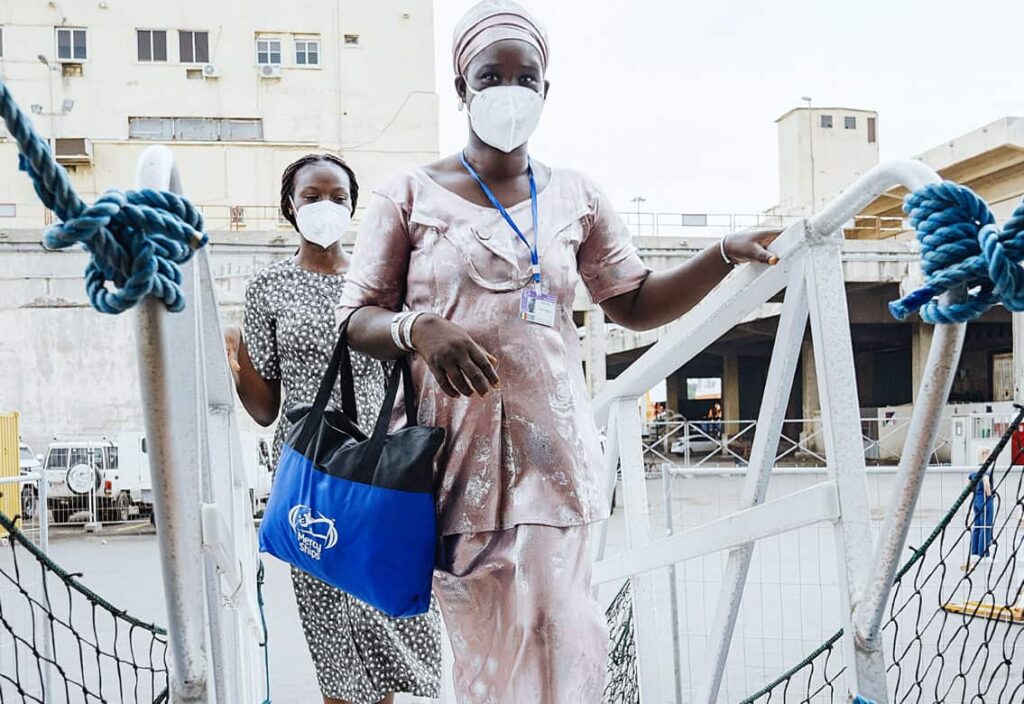
Healing on the Africa Mercy®
At the age of 40, Astou received her fistula surgery along with 13 other women, many of whom had also spent years looking for help. She spent a few weeks recovering in the hospital wards, surrounded by others who could relate to her journey. “When I was on the ship, I met women who had the same illnesses as me and they did not believe that they would ever be healthy,” she says.
Volunteer nurse Rachel Cooper from the United States was one of the nurses caring for Astou. She couldn’t help but notice how Astou came alive after surgery.
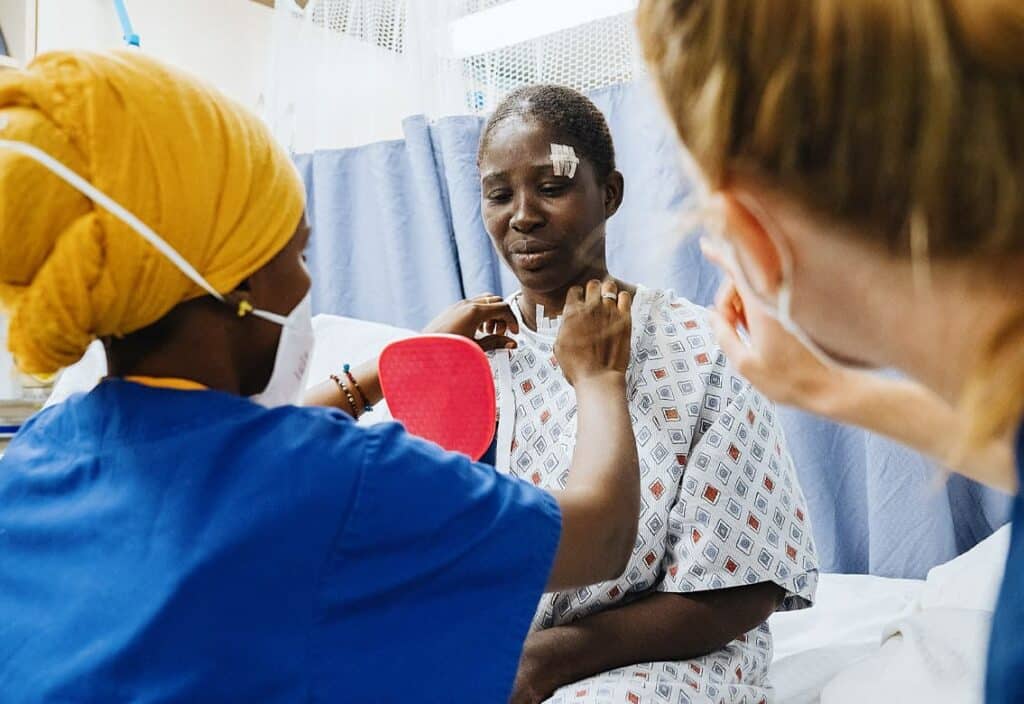
“At first, she was reserved and that was common for most of our patients… that they would come, and their eyes would typically be on the ground, or their shoulders would be a little bit slumped. And you could see that there was so much shame wrapped up in being a woman who leaked urine from an obstetric fistula. But as her care progressed, I saw her perk up.”
Astou felt the change in herself as well, especially during the Dress Ceremony, a celebration where healed women are given beautiful new clothes.
After the surgery, when I looked at myself, I felt that I was not like before,” marveled Astou.
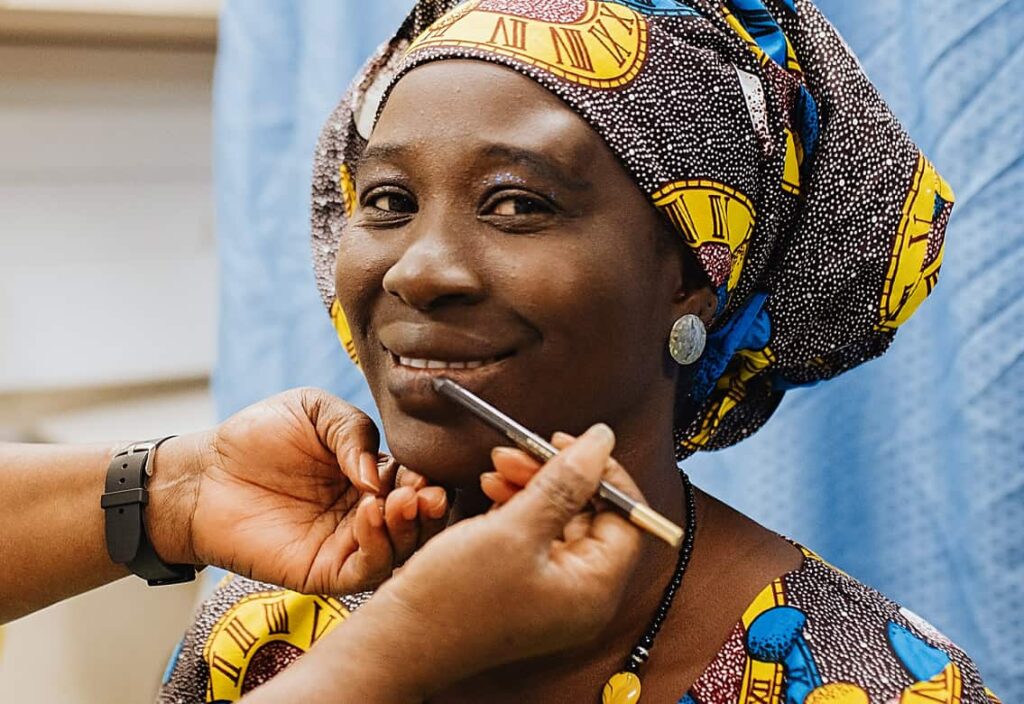
A few months later, she came back to the hospital to have the goiter removed. After the successful surgery, her thoughts immediately turned to fresh starts and new beginnings.
“I can’t wait to go back home to my husband and daughter feeling healthy. I am ready to go back to my farm without fear that I’ll get sick and stop working,” she said.
Mamadou believes Astou’s transformation runs deeper than the physical. “Since she has been treated, she is free and happy. She can go out and she can also welcome whomever she wants at home with happiness and full of joy.”
To enable other patients like Astou to have access to life-changing surgeries onboard a hospital ship, you can donate here or to discover other patient stories.

